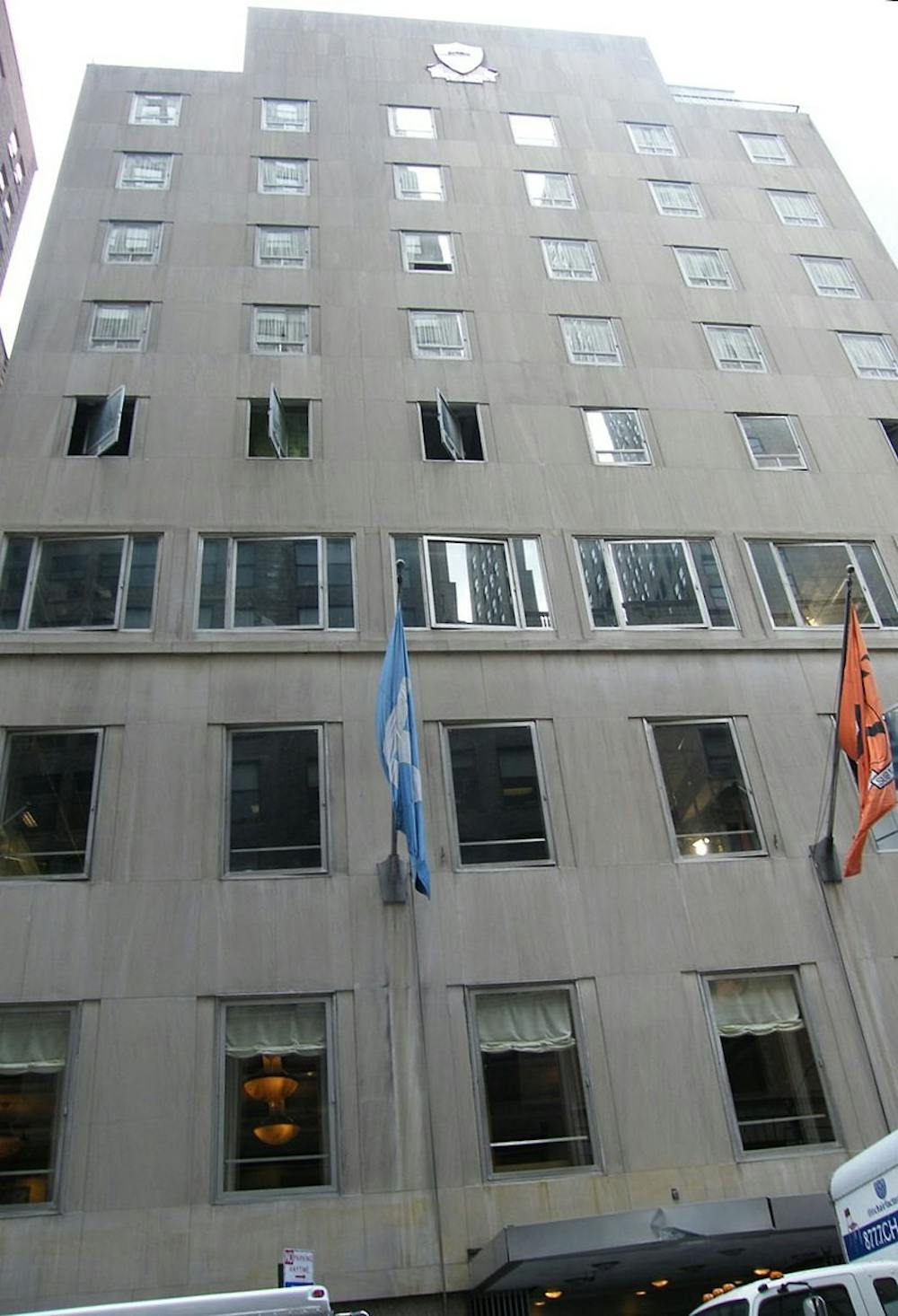The Princeton Club of New York may soon lose its nine-story Manhattan clubhouse after defaulting on $39.3 million of mortgage debt. The building is set to be sold to the highest bidder. Boasting event spaces, athletic facilities, and two restaurants, among other amenities, the organization has lost roughly one-third of its 6,000 dues-paying members since the start of the pandemic. The Club is open to University alumni, students, faculty, and administrators in addition to individuals affiliated with 15 other educational institutions.
Membership dues, assessments, guest room rentals, and food and drink have historically been enough to support the Club, which opened in 1866 and moved to its current location at 15 West 43rd Street in 1963. However, the organization fell on harder times after the COVID-19 pandemic forced its doors to close for 15 months.
“While closed during the mandated closures in New York City, or only partially reopened due to the pandemic, the Club was deprived of all or most of our operating income for over a year,” wrote Club President Christine Loomis ’72 in an email to the organization’s members.
In March, the Club received forbearance through September on its debt from Sterling National Bank. When it came time to pay, “the bank offered the Club a further forbearance … but for only one month and with punitive interest rates and conditions,” Loomis noted. “We could not accept these terms, and the bank declared us in default.”
Unfortunately for the Club, the University has not expressed any desire to provide assistance. While a number of other Ivy League alumni clubs maintain monetary ties to the schools they serve — the buildings for the Cornell Club and the Penn Club are owned by their respective institutions — the Princeton Club of New York has no financial relationship with Nassau Hall.
Nevertheless, Bloomberg News reported that the “storied club” sought to “enlist [the] University’s help.” Tom Bailey ’94, the Club’s media contact, further indicated that the organization plans “on reaching out” to other affiliated schools. “We have been in contact to explain the current situation,” he wrote.
Douglas Robins ’23, a member of the Club, believes that losing the building would be exceptionally detrimental. “Pre-COVID … the whole life of the club was in the physical clubhouse,” he said. “That was where events took place, that was where people gathered.”
“One of the selling points of our school is that we have the best alumni network in the country,” he later continued. “I think that we should have spaces to facilitate that, and I think it’s wrong for Princeton not to financially support the Princeton Club.”
In an email to The Daily Princetonian, a University official, who declined to speak on the record, downplayed the importance of the Club, choosing instead to promote the region’s Alumni Association.
“The Princeton Association of New York City — the University’s largest regional alumni association — provides a steady, diverse slate of programming throughout the year for the more than 9,000 alumni residing in the region,” the official wrote. “These events provide a range of opportunities for Princetonians to connect, learn and serve. Most PANYC events are either free or low cost and are held in many locations. In addition, our New York City area alumni benefit from easy access to campus events.”
The fate of 15 West 43rd Street will likely be sealed soon as Sterling National Bank hired Newmark Group Inc. to auction the Club’s debt by the end of November. While a buyer would have the power to work with the Club to achieve financial solvency, leniency is far from guaranteed. An unfriendly acquisition could leave the Club without a home.
“We had hoped to dissuade the bank from taking this step,” Loomis wrote, “offering several friendly prospective note-buyers who were interested in investing in our Club and community. But the bank has insisted on running a process without our input. Sterling has rejected our proposed solutions for new investment in the Club so far … To the extent members of our community are interested in participating in this auction, we encourage you to reach out to us.”

If the Princeton Club is forced to vacate its space, the University would be the only school in the Ivy League that does not provide access to an alumni clubhouse for its members. Cornell, Harvard, Penn, and Yale all own Manhattan spaces comparable to the current Princeton Club while individuals affiliated with Columbia, Dartmouth, and Brown may join the clubhouses for Penn, Yale, and Cornell respectively.
Lia Opperman is a news contributor for the 'Prince.' She can be reached at liaopperman@princeton.edu or @liamariaaaa on Instagram.
Sam Kagan is a Staff Writer and News Editor Emeritus at the ‘Prince.’ He also leads the surveys team. He can be reached at skagan@princeton.edu.
Editor’s Note: A previous version of the article did not specify that the University official quoted declined to comment on the record.








